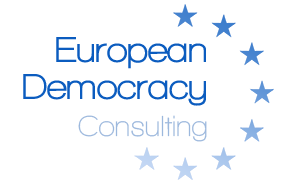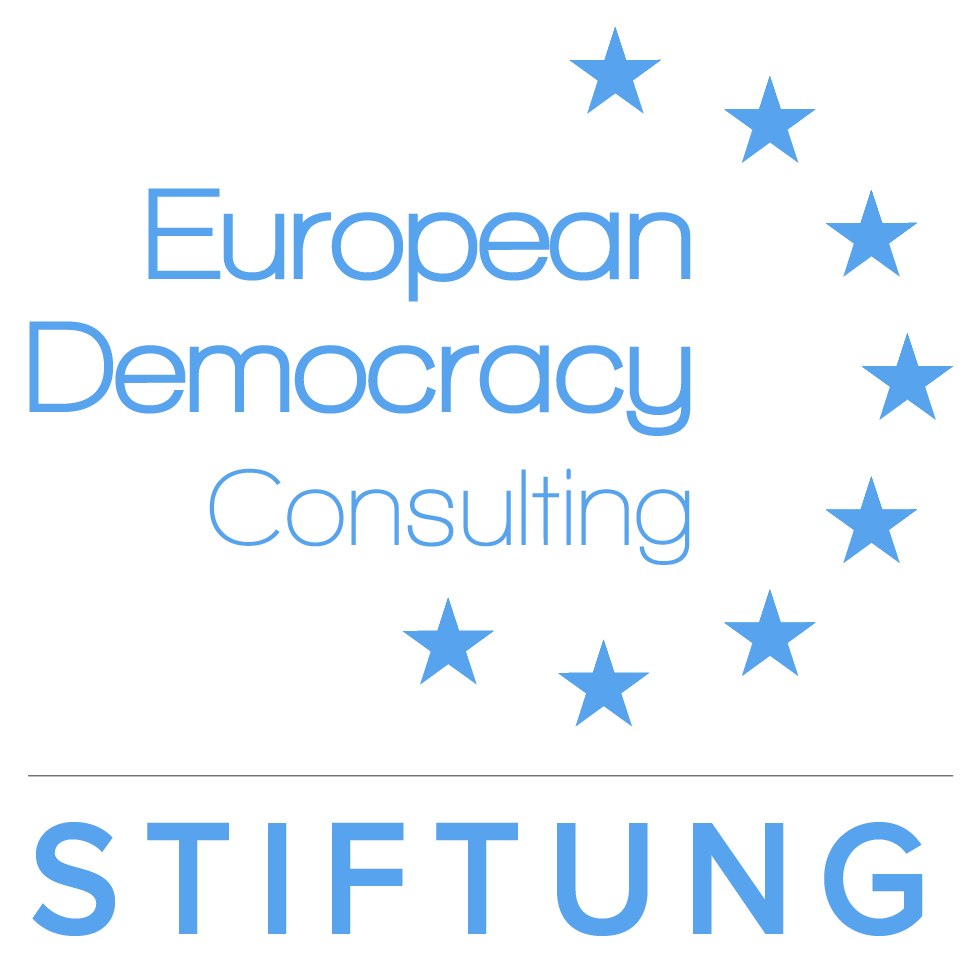European Democracy Consulting’s stated goal is the strengthening of European democracy for the benefit of all European citizens. In practice, our work has focused on four pillars: the reform of European elections, the reform of European political parties, the improvement of geographical representation in the EU’s leadership, and the enhancement of transparency.
European elections
European Democracy Consulting has long advocated for an overhaul of European elections that would place European citizens, and not member states, at the core of the system.
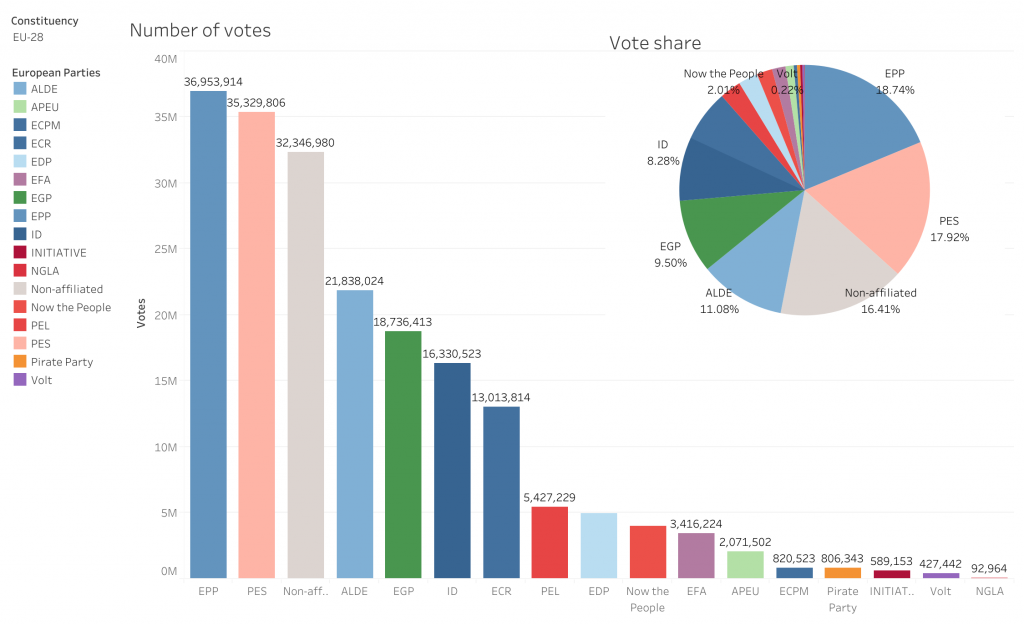
Following the 2019 elections to the European Parliament, and in line with our goal to make European elections more European, we analysed the results of the latest European elections from the perspective of European political parties, instead of the usual breakdown between national political parties or political groups of the European Parliament. This study allowed a better comparison of electoral results across EU countries, as well as a better understanding of the weight of national parties who are not members of European political parties (but whose MEPs often join political groups).
We later added a comparison of the electoral cycles between a confederal system like the European Union and a federal system like the United States, which highlighted the continuous nature of elections across Europe.
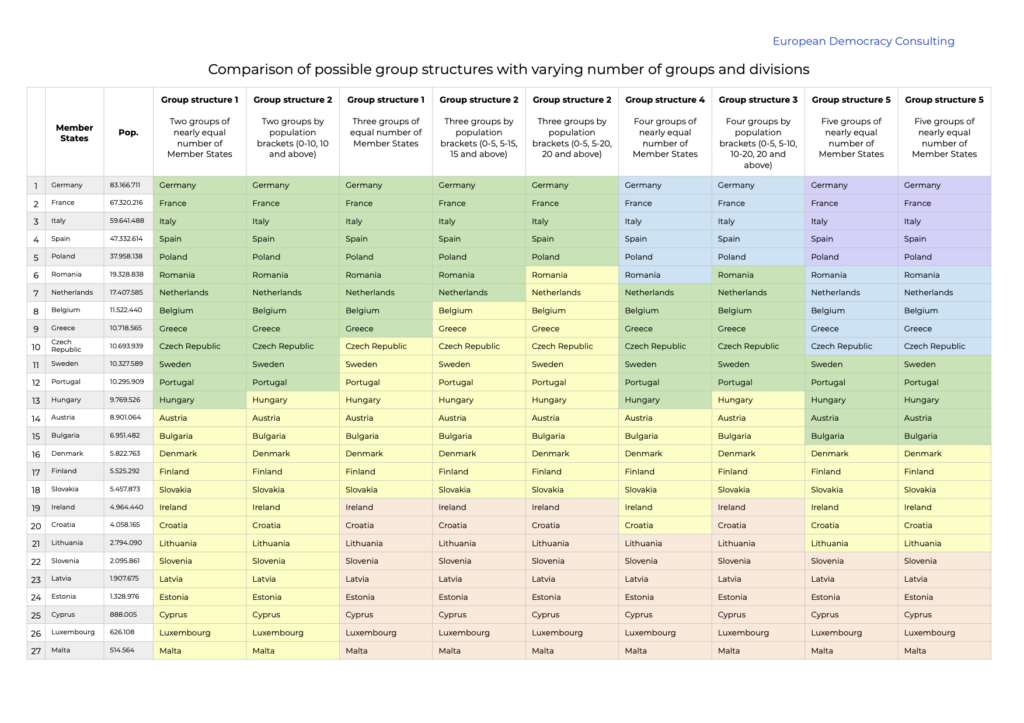
In 2021, the Committee on Constitutional Affairs of the European Parliament started its review of the EU electoral act, and worked to design a system of transnational lists. While European Democracy Consulting had supported a broader and more encompassing review of European elections — including the use of mix-member representation — we developed an original model of transnational lists aimed at improving upon the European Parliament’s own proposal called the Ranked apportionment method. This lead to many publications as the legislative process moved forward, including an initial presentation of the system, a report for the Council of the European Union, and shorter and more illustrated documents focusing on the issues at hand and their solutions.
Over the six months leading to the 2024 European elections, we maintained a Donations tracker indexing all donations made to European parties and foundations published by the Authority for European political parties and European political foundations (APPF), as part of its expedited reporting process. In addition to the amounts provided by the APPF, the tracker provided a chronological record of the donations and provided per-party, per-member state, and per-donor type views.
European political parties
The treaty-mandated role of European political parties is to “[form] European political awareness and [express] the will of citizens of the Union.” In practice, however, citizens are hardly aware of the existence of European political parties. Convinced that a true European democracy cannot simply the sum of separate national democracies, European Democracy Consulting carries out research and develops proposals to reform the framework on European political parties and enhance their role in our common democracy.
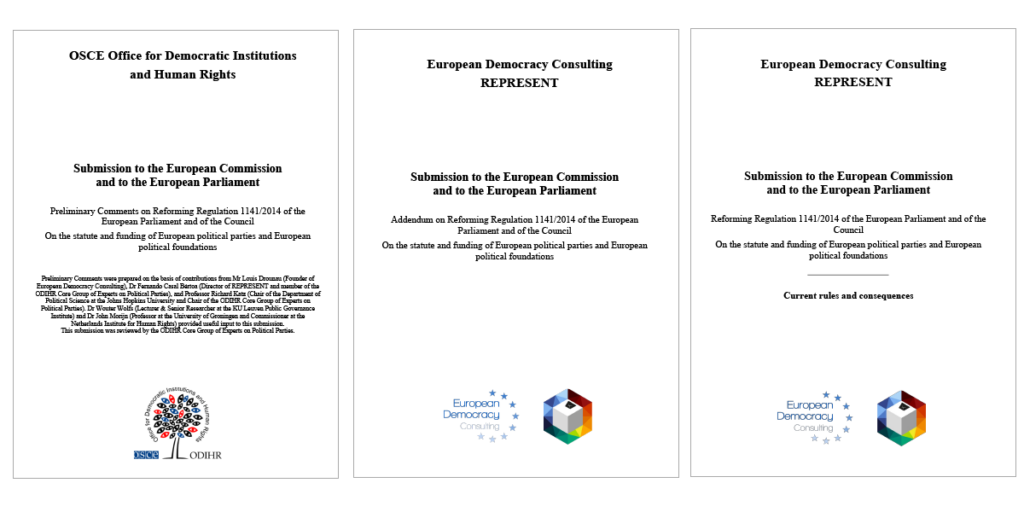
At part of this work, European Democracy Consulting has produced a wide array of outputs and made important contributions to the discussion on European political parties. Major reports, such as a seminal report on the reform of European parties and 49 recommendations establishes for the OSCE Office for Democracy and Human Rights, provide a comprehensive view of the reforms needed.
Others documents respond directly to proposals made by the European Commission, Parliament, or Council.
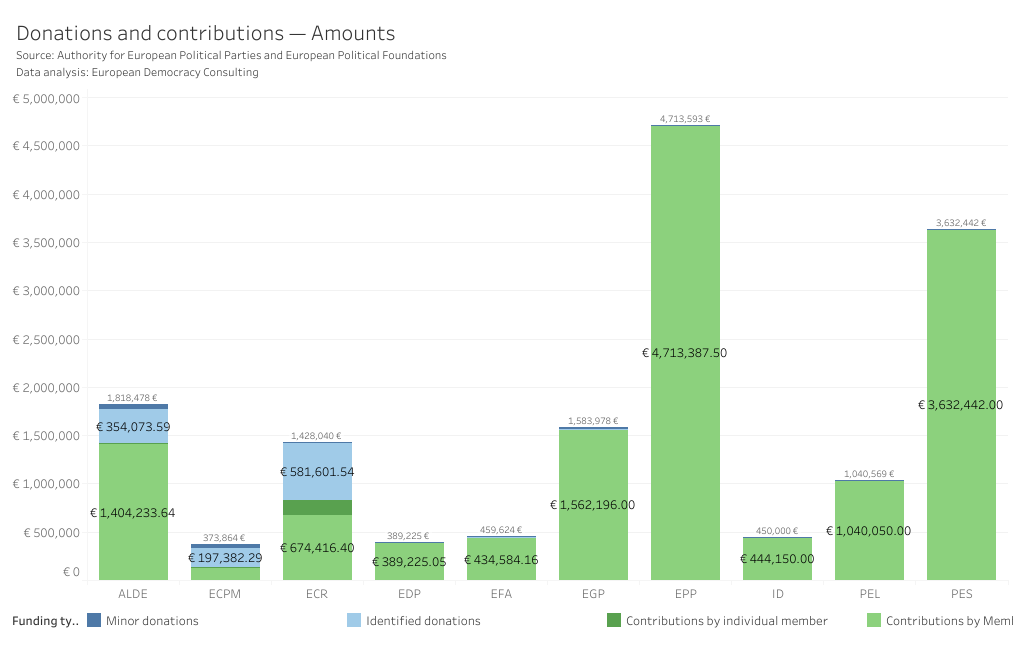
Finally, topical publications focus on specific aspects of European political parties. This includes the visibility of the link between national and European political parties, the visibility of donations and contributions, or the work of the Authority for European parties.
The goal is this stream of work is both to strengthen the legal regime applicable to European political parties, and to raise awareness among decision-makers and monitoring bodies of the shortcomings of the current framework and of its implementation.
European Party Funding Observatory
As part of its work on European political parties, European Democracy Consulting has focused on party financing and on transparency — proposing numerous recommendations for both — and on the nexus between the two. This has led to a series of research works on the visibility of donations and contributions received by European parties.
The next step in this effort is the development of stand-alone, permanent observatory of the funding of European political parties, which European public institutions have so far declined to build, despite our recommendations and the presence of many similar party funding observatories at the national level.
European Democracy Consulting therefore developed an online platform providing up-to-date data and visualisations on the funding of European parties since the advent of public funding for European parties in 2004. This observatory seeks both to provide answers about the funding and expenses of European parties (thereby increasing transparency), and to generate interest in these little-known parties that seek to represent us all (thereby enhancing democracy). In July 2023, this observatory was officially transferred to the European Democracy Consulting Stiftung, which is a non-profit association dedicated to advancing the study of European institutions and democracy.
You can visit the European Party Funding Observatory at epfo.eu.
Geographical representation
In late 2019, following a debate on the EU’s East-West divide, European Democracy Consulting devised a seminal review of the citizenship of key EU leaders and of the location of EU institutions, agencies, and other bodies across five sub-regions of the EU.
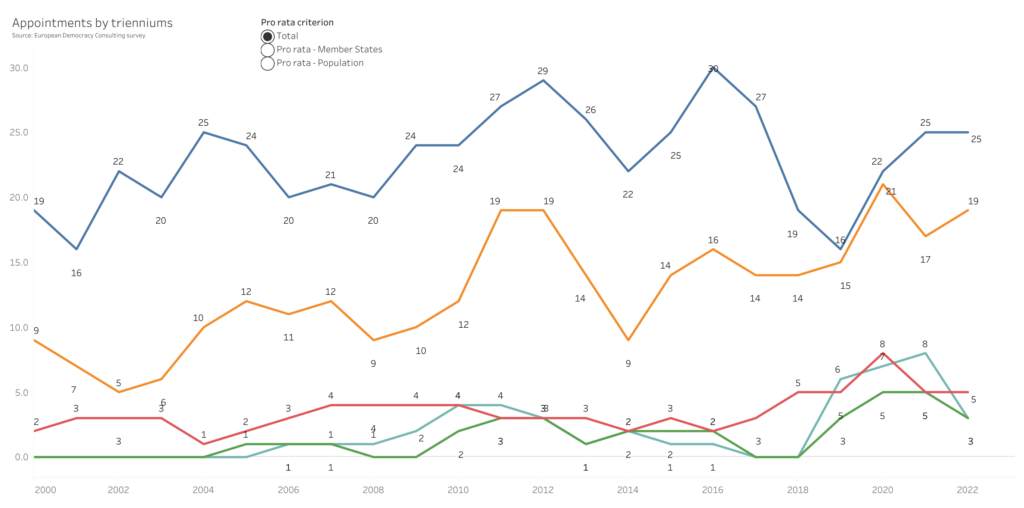
In 2021, European Democracy Consulting turned this brief analysis into a full-fledged “Geographical Representation in EU Leadership Observatory” covering 70 entities, around 90 positions, and hundreds of office-holders since the inception of the European project in 1952.
This project has since grown in scope and depth, and is updated on an annual basis. It has attracted notable media attention and helped put clear figures on an on-going but rarely quantified issue for the fair representation of all European citizens.
Transparency
In addition to the topics presented above, European Democracy Consulting has sought to strengthen European democracy by addressing the transversal issue of transparency, in particular with regards to European political parties.
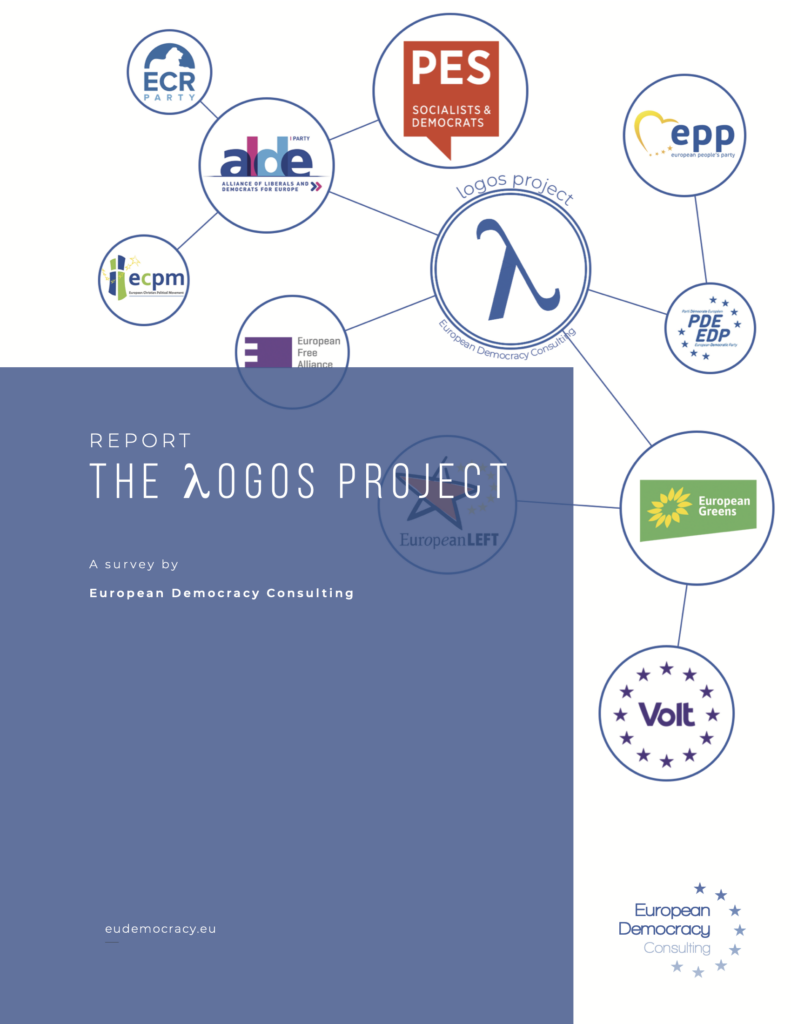
Given the extremely limited visibility of these parties, European Democracy Consulting has pushed this issue on a number of front, including the general transparency regime applying to European parties and to the APPF, the funding of European parties, the visibility of their link with their national member parties, and their MEP membership.
European Democracy Consulting has also supported increased transparency by engaging relevant stakeholders. For instance, European Democracy Consulting successfully petitioned the European Parliament to release documents relating to European parties and their funding without redactions and without delay. We engaged with members of the European Parliament in order to obtain the publication of financial data, including on European political parties, in open, machine-readable format. Finally, we continue to push for the inclusion of European parties in Eurobarometer surveys in order to generate periodic data on European citizens’ knowledge and recall of their European parties.
